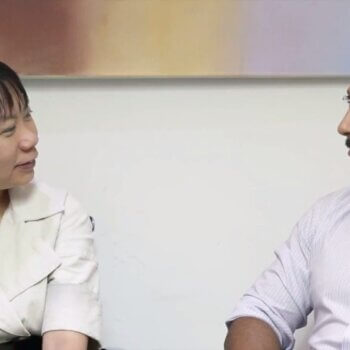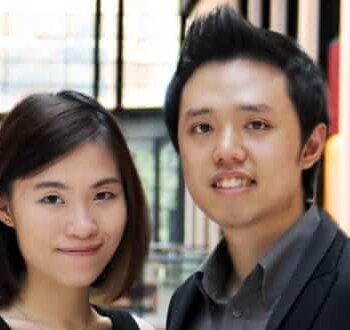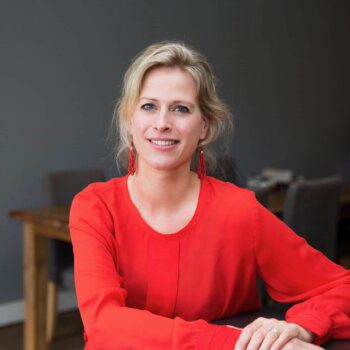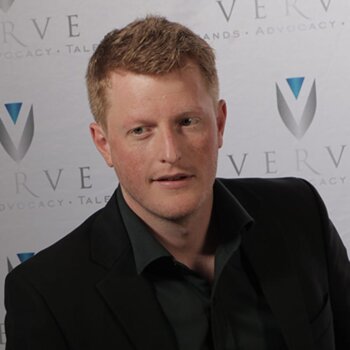(Women on Top in Tech is a series about Women Founders, CEOs, and Leaders in technology. It aims to amplify and bring to the fore diversity in leadership in technology.)
Linda Liukas is the Founder of the Rails Girls – a workshop for girls who want to learn to build the web. It aims to open up technology and make it more approachable for girls and women. Linda is also the author of “Hello Ruby” – the world’s most whimsical way to learn about computers, technology, and programming. Currently, she is finalising a book on how to explain machine learning to a six-year-old.
What makes you do what you do?
My work exists at the intersection of three things: early childhood education, technology and play. The first draws inspiration from Montessori, John Dewey and Reggio Emilia, the second from computing culture of the 1960s, the third is the small, soft, communal, subjective side of learning that is often forgotten.
When I first started writing books about technology for kids, I knew almost nothing about pedagogy. For me, computing was magical, charming and imaginative — but the materials teaching it often dull and uninspiring. And if computer science is becoming the way to understand the world, instead of grammar classes, I wish to see more poetry lessons.
In a more and more technical world, we need to make STE(A)M education more approachable, more colourful and more diverse.
How did you rise in the industry you are in?
When I was in my early twenties I started an event to teach young women programming skills. Rails Girls started to spread (and now almost ten years later has been in over 300 cities) and I started to develop a community who followed my work in making computer science approachable for beginners. When I was ready to start with the children’s book, I put it on Kickstarter where it raised over 380 000 dollars in 2014. Now the book series has been translated into over 25 languages and has been awarded in all over the world from China to Middle East. The books are used in thousands of schools around the world.
I think my rise is due to having a unique voice and perspective.
I think too often we think that learning programming means sitting in front of a computer or giving away play, outdoors, social experiences etc. Playing in the woods was a huge part of my own childhood and I wouldn’t take it away from future generations. But I think we humans can be many things at the same time, we are not binary like computers. And this means the kids might play in the woods, but also wonder what would it mean if all trees had sensors in them? Or maybe learn to model your treehouse in a CAD program?
Computational thinking concepts are more fascinating when we understand their presence all around us. Inspired by Montessori, I’ve practiced making computer science concrete, specific and understandable to the child. A computer can take a thousand forms.
Do you have a mentor that you look up to in your industries or did you look for one or how did that work?
Not really, but I do look up to educational luminaries like Maria Montessori or Loris Malaguzzi, artists like Björk and computer science pioneers like Seymour Papert.
How did you make a match if you did, and how did you end up being mentored by him/her?
My parents have always supported me in many different ways. They never pushed me to have a career in technology but helped me discover my own interest and joys.
When I was a small girl, my dad bought home a laptop computer. This was the beginning of 1990’s and computers were insanely expensive. And this was his work laptop with important work files. But my dad told me and my siblings there isn’t anything you can’t do with a computer that is not reversible. This was, by the way, the time before Dropbox or automatic backup systems, so that was kind of a bold claim. As a result, I probably destroyed Windows a few times, but also learned how to fix things and developed this fearless attitude towards computers that has really been the basis for everything I do.
All my books are dedicated to my mom since she is the bedrock and the true north in whatever I do. She is my first point of critique and keeps reminds me of the magic of childhood when I turn too technical.
Do you consciously or unconsciously support diversity and why?
My entire work has to do with bringing more diversity into computer science. I’ve always loved the idea of programming as the Lego block of language. You basically create something out of nothing: build ever more complicated worlds and structures without the need for physical components. Most children feel somewhat powerless in their lives. Someone else comes up with the rules. Not in programming – you’re the king of your own universe.
I definitely wish to see programming become one tool in a big box of self-expression – along with crayons and blocks of wood and prisms and pipettes. This way we’ll have a more colorful, exciting computing culture.
What is your take on what it takes to be a great leader in your industry and as a general rule of thumb?
I think that a leader in computer science & education field needs the same qualities as a good coder: persistence, creativity, and curiosity. Rather than just solving a problem it is important that you are able to ask good questions and make others think for themselves and work together on problems.
Advice for others?
At 32 I often think that the 12-year-old version of myself was much more interesting, radiant and full of potential than me at 22. I’d tell my play-it-safe 22-year-old self that I can only become truly accomplished by finding the childlike joy and spirit I had at 12. At 22 I was still trying to fit into a more traditional career in technology. The moment I decided to step into my own possibility and curiosity I started to move ahead. Consistency with yourself is the only way to work out a career that makes you happy.
I’m surrounded by amazing, ambitious women, and most often I end up reminding these women to be gentler with themselves. The grammar of growing up requires for some reason us to experience struggle and become hard. Being soft, gentle and loving towards yourself is what we often forget.
If you’d like to get in touch with Linda Liukas, please feel free to reach out to her on LinkedIn: https://www.linkedin.com/in/lindaliukas/
To learn more about Rails Girls, please click here.





























